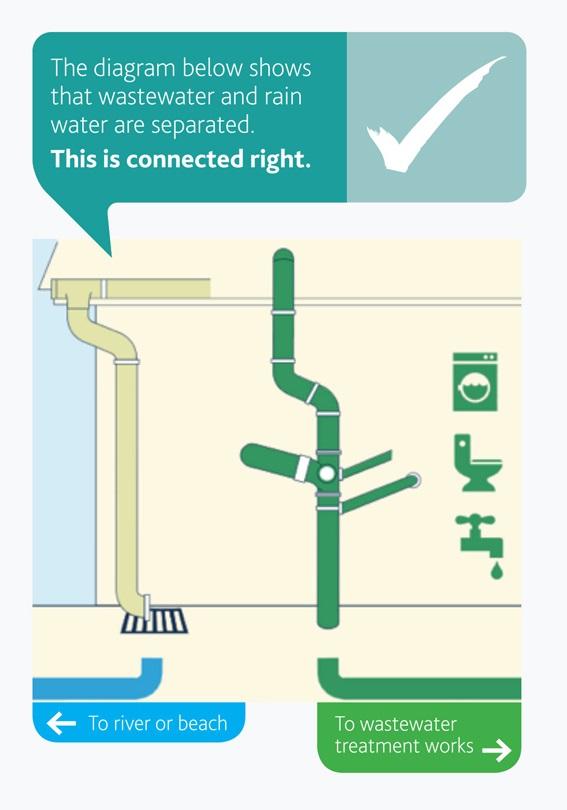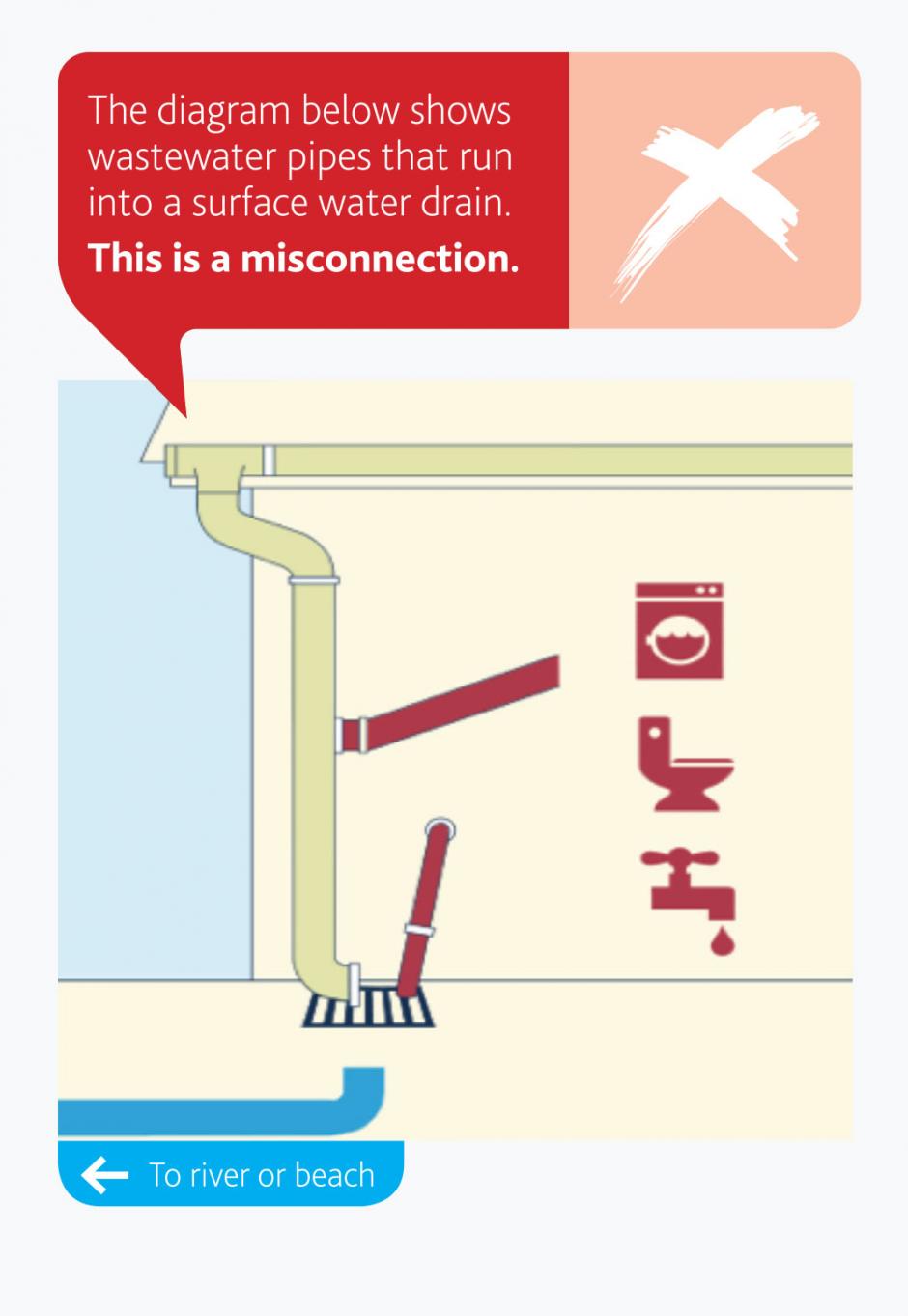Connecting your home to the right drains
Drains are underground pipes that take water away from houses and buildings. Most homes have separate drains for rainwater and wastewater. The owner is responsible for checking their property has the right drain connections. If your property has the wrong drain connections, you could be causing water pollution.
Drain for rainwater
This drain collects rainwater from:
- roofs
- driveways
- roads
Rainwater is untreated. It's also described as 'storm water'. The surface water drain takes it directly to rivers and beaches.
Drain for wastewater
Wastewater comes from:
- toilets
- sinks
- baths and showers
- washing machines
- dishwashers
This drain takes the foul water to the local wastewater treatment works.
Drain connections
Wastewater must not flow into the surface water drain. Unless your house is on a combined drains system, it needs separate drain connections to collect wastewater and rainwater. Homeowners and landlords are responsible for checking they have separate drain connections from their home.
Combined drains
If your property was built before 1970, you might have a combined drains system. This is a single pipe collecting your wastewater and rainwater runoff. You don't need to replace the single pipe with separate drains.
Separate drains
Most properties built since 1970 have separate drains for rainwater and wastewater.
How your home could cause pollution
If wastewater from your home flows into the rainwater drain, this takes untreated water to the nearest river. This pollutes:
- river water
- the sea
- local beaches
Your house could have the wrong drain connections because:
- you or a plumber installed a new appliance
- you renovated or extended your home
When your home was originally built, it's possible the builder or owner might have installed connections to the wrong drains.
Connecting gutters and gullies
Gutters and gullies should only collect rainwater and connect to the rainwater drain. Wastewater pipes should not be connected to the rainwater system. If the rainwater gutters and gullies are connected to the wastewater drain, rainwater could overwhelm the drain and cause flooding.
How to recognise right or wrong drain connections
The diagram shows a property with separate drain connections for wastewater and rainwater. This house has the right drain connections.

The diagram below shows a property with wastewater pipes connected to the rainwater drain. This house has the wrong drain connections.

Checking drain connections
If you’re a homeowner or landlord, check your home has the right connections for all rainwater and wastewater plumbing.
You need to connect the following to the wastewater drain:
- toilets
- sinks
- baths and showers
- washing machines
- dishwashers
If your home is on a separate drains system but has the wrong drain connections, you should put them right. You could be causing water pollution in a local waterway or beach.
Installing drain connections
You should ask a plumber to check your drain connections. If they discover the wrong drain connections, ask them to install the right connections.
Drain connections in a rented property
If you rent your home and the property has the wrong connections, you aren’t responsible for installing the right connections. You should ask your landlord to install the right connections for rainwater and wastewater plumbing.
Checking drain connections before you buy a property
It is important to check a property has the right drain connections before you buy. Ask your surveyor or contractor to include drain connections in their survey report.
How to avoid blocked drains
Household waste can block drains. Don’t put cleaning liquids or cooking waste in rainwater drains or road gullies including:
- cooking fat, oil and grease
- chemicals
- paint
- detergent
- bleach
You might be able to bring some of these items to a recycling centre. Ask the local council about what they accept at their recycling centres.
Don’t put household waste down the toilet such as:
- nappies
- cotton buds
- cleaning wipes
- baby wipes
- sanitary items
- syringes
- razors
Put this waste in your household bin for landfill. If this waste is in the wastewater drain, it can block drains and cause sewers to overflow. The overflow can cause pollution and health hazards.
Drainage Misconnections Leaflet
To find out more about connecting and misconnecting your drains, and how your house could be causing pollution you can read, distribute or display the Drainage Misconnections Leaflet.